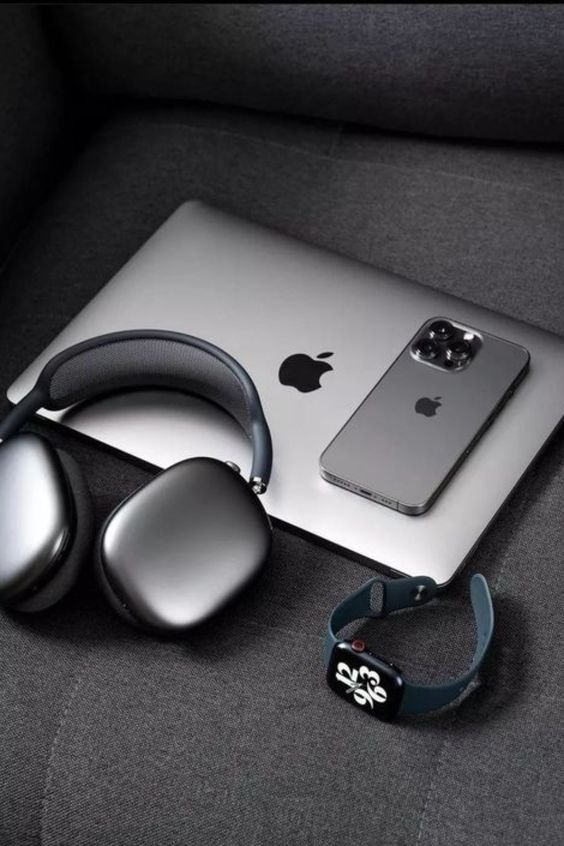
WhatsApp, the globally renowned instant messaging platform owned by Meta, is taking a significant leap forward by introducing augmented reality (AR) capabilities for video calling. These cutting-edge features, currently being tested in beta versions for iOS and Android, aim to enhance the user experience by offering a new level of customization and interactivity during video calls. As the platform evolves, it continues to push the boundaries of what is possible in digital communication, blending the real world with the virtual in seamless ways. In addition to AR, WhatsApp is also introducing a suite of new features designed to enhance usability, privacy, and user experience across the platform. This article delves into the details of WhatsApp’s AR capabilities, the range of new video call enhancements, and the upcoming privacy features that are set to redefine how users interact on the platform.
The Introduction of Augmented Reality in WhatsApp Video Calls
Augmented reality (AR) has been a buzzword in the tech industry for several years, with its potential to transform various aspects of digital interaction being widely recognized. WhatsApp is now poised to bring this transformative technology to its vast user base, integrating AR features directly into video calls.
AR Features for Video Calling: A New Dimension of Interaction
According to WhatsApp update tracker WABetainfo, Augmented reality capabilities have been spotted in the iOS 24.17.10.74 update, which is available on TestFlight. These features are designed to enhance the video calling experience by allowing users to apply dynamic facial filters and effects in real-time. This technology not only adds a fun and interactive element to calls but also opens up new possibilities for how users can express themselves visually.
The report from WABetainfo highlights that WhatsApp intends to offer iOS users the same AR features that have already been introduced for Android users. This cross-platform approach ensures that users, regardless of their device preference, can enjoy the full range of Augmented reality enhancements.
Dynamic Facial Filters and Effects
One of the most exciting aspects of the AR integration is the introduction of dynamic facial filters. These filters, which can be applied during video calls, allow users to customize and enhance their appearance in real-time. Whether it’s adding playful effects like animal ears or applying subtle beauty enhancements, these filters provide a new way for users to personalize their video calls.
The use of AR in facial filters is not entirely new, as platforms like Snapchat and Instagram (also owned by Meta) have pioneered these features. However, WhatsApp’s implementation within the context of a communication platform takes this concept further, integrating it seamlessly into everyday conversations.
Background Editing and Low-Light Mode
In addition to facial filters, WhatsApp is introducing a background editing tool that allows users to blur their surroundings or replace them with pre-set backgrounds. This feature is particularly useful for maintaining privacy during video calls or for creating a professional backdrop in a business setting. The ability to control what appears behind you during a call adds a layer of customization that enhances the overall user experience.
Moreover, the low-light mode toggle is a thoughtful addition that addresses the common issue of poor visibility during video calls in dimly lit environments. This feature automatically adjusts the brightness and contrast of the video, ensuring that users can be clearly seen even without natural light. This enhancement is particularly beneficial for users who frequently make calls in varying lighting conditions, such as during nighttime or in poorly lit rooms.
Touch-Up Mode for a Polished Appearance
Another noteworthy feature is the touch-up mode, which allows users to smoothen their appearance during video calls. This tool works similarly to beauty filters found in many photo editing apps, subtly enhancing the user’s appearance by minimizing imperfections and providing a more polished look. For users who want to present their best selves in video calls, especially in professional or formal settings, this feature offers a convenient solution.
Customizable Video Call Settings: Enhanced Usability
WhatsApp is not just focusing on Augmented reality features but is also improving the overall usability of its video calling platform. One of the key updates is the ability for users to customize and save their video call settings. These customized settings will be stored by WhatsApp, meaning that users won’t need to reconfigure their preferences for each call. This enhancement streamlines the user experience, making video calls more convenient and tailored to individual needs.
This feature is particularly useful for users who frequently engage in video calls and prefer specific settings, such as a certain background or filter. By saving these preferences, WhatsApp ensures that users can quickly and easily access their preferred setup without having to adjust settings manually before every call.
Expanding Privacy Features: The Introduction of Username and PIN
In addition to the exciting AR and video call enhancements, WhatsApp is also making significant strides in improving user privacy. One of the most anticipated features set to be released is the “Username and PIN” option, which allows users to replace their phone numbers with usernames.
Privacy in the Digital Age: The Importance of Usernames
The introduction of usernames in WhatsApp marks a major shift in how users can interact on the platform. Traditionally, WhatsApp has relied on phone numbers as the primary identifier for users. While this approach has its advantages, it also raises privacy concerns, particularly when users are interacting with individuals outside their immediate social circle or in group settings.
By allowing users to choose a username, WhatsApp offers an additional layer of privacy. Users can now interact without revealing their phone numbers, which is especially useful in situations where they want to maintain anonymity or avoid unsolicited contact. This feature is similar to what is already available on other messaging platforms like Telegram, where usernames are a common method of user identification.
The Role of the PIN in Enhancing Security
To further enhance security, WhatsApp is introducing a PIN option that can be used in conjunction with the username. The PIN adds an extra layer of protection, ensuring that even if someone gains access to your username, they cannot impersonate you or gain unauthorized access to your account without the correct PIN.
This combination of username and PIN provides a robust security framework, giving users more control over their privacy and how they are identified on the platform. The new privacy settings will offer three options: “Username,” “Phone number,” and “Username with PIN,” allowing users to choose the level of privacy and security that best suits their needs.
WhatsApp Business Messaging Policy Update: New Opportunities for Businesses in India
In related news, Meta has updated its WhatsApp Business messaging policy, allowing companies in regulated sectors to send promotional messages to users in India through the WhatsApp Business platform. This update reflects WhatsApp’s ongoing efforts to expand its functionality beyond personal communication and into the realm of business-to-consumer interactions.
WhatsApp Business: A Growing Platform for Enterprises
WhatsApp Business has grown significantly since its launch, providing businesses with a direct and effective way to reach their customers. The platform offers a range of tools designed to facilitate customer engagement, including automated responses, catalogs, and now, the ability to send promotional messages.
The updated policy is particularly relevant for businesses in regulated sectors, such as finance, healthcare, and insurance, where direct communication with customers is often restricted by stringent regulations. By allowing these businesses to send promotional messages, WhatsApp is providing them with a valuable tool to engage with their customer base in a compliant manner.
Impact on Consumers and Businesses
For consumers, this update means that they can expect to receive more targeted and relevant promotional content from businesses they engage with. WhatsApp’s strict compliance with regulations ensures that users’ privacy is respected, and they have control over the types of messages they receive.
For businesses, especially those operating in India’s highly regulated markets, this update opens up new opportunities to connect with customers in a personalized and impactful way. The ability to send promotional messages directly through WhatsApp can help businesses increase customer engagement, drive sales, and build stronger relationships with their audience.
The Future of WhatsApp: A Platform for Communication and Beyond
WhatsApp’s recent updates, from AR capabilities to enhanced privacy features and expanded business tools, reflect the platform’s ongoing evolution from a simple messaging app to a comprehensive communication platform. These updates are part of Meta’s broader strategy to integrate advanced technologies and features across its suite of apps, making them more versatile and user-friendly.
The Growing Role of AR in Communication
The introduction of Augmented reality in video calls is just the beginning of what could be a broader integration of augmented reality across WhatsApp and other Meta platforms. As AR technology continues to develop, we can expect to see even more innovative applications that enhance how users interact with digital content and each other.
For WhatsApp, AR represents a significant opportunity to differentiate itself from other messaging platforms by offering unique and immersive experiences that go beyond text and voice communication. Whether it’s through dynamic filters, virtual backgrounds, or interactive effects, AR has the potential to transform how we connect and communicate.
Enhancing User Privacy: A Core Focus
Privacy has always been a core concern for WhatsApp, and the introduction of usernames and PINs is a clear indication that the platform is committed to giving users more control over their personal information. As digital communication becomes increasingly central to our lives, the importance of privacy cannot be overstated.
WhatsApp’s approach to privacy, which combines advanced security features with user-friendly settings, ensures that users can communicate confidently, knowing that their data is protected. The introduction of usernames and the option to replace phone numbers with usernames is a forward-thinking move that aligns with broader trends in digital privacy.
Expanding Business Capabilities
WhatsApp’s decision to update its business messaging policy is a strategic move that further solidifies its position as a key player in the business communication space. As more companies turn to digital platforms to connect with their customers, WhatsApp’s ability to offer secure, compliant, and effective messaging solutions will be a significant competitive advantage.
The expansion of WhatsApp Business, particularly in a market as large and dynamic as India, underscores the platform’s potential to drive business growth and innovation. By providing businesses with the tools they need to engage customers meaningfully, WhatsApp is not only enhancing its own value proposition but also contributing to the broader digital economy.
Conclusion: WhatsApp’s Evolution and Future Prospects
WhatsApp’s recent updates represent a significant step forward in the platform’s evolution, blending cutting-edge technology with user-centric features that enhance both communication and privacy. The introduction of Augmented reality capabilities in video calls, along with the expansion of privacy settings and business tools, reflects WhatsApp’s commitment to staying at the forefront of digital communication.
As these features roll out more widely, they will undoubtedly reshape how users interact on the platform, offering new ways to connect, express themselves, and engage with businesses. Whether through the playful use of Augmented reality filters, the enhanced privacy of usernames, or the targeted messaging capabilities for businesses, WhatsApp is setting the stage for a new era of digital communication.
In the ever-competitive landscape of messaging apps, WhatsApp’s ability to innovate and adapt will be crucial to its continued success. With these latest updates, the platform is not only meeting the current demands of its users but also laying the groundwork for future growth and innovation. As WhatsApp continues to evolve, it remains a vital tool for personal and professional communication, bridging the gap between the real and digital worlds in ways that were once unimaginable.
ALSO READ: YouTube Premium Price Hike in India: What You Need to Know







